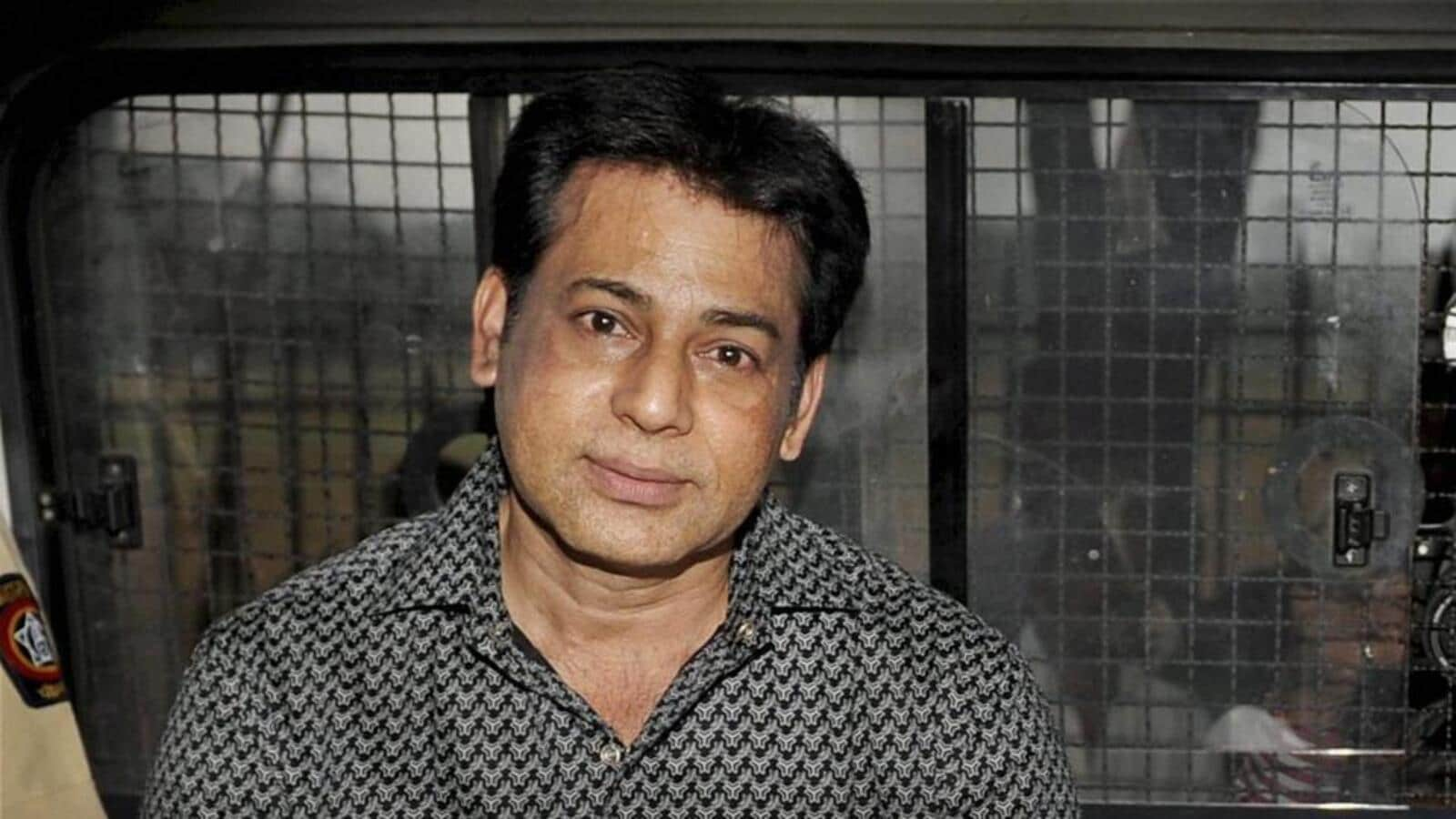[ad_1]
New Delhi: Pulling up the central government for being “evasive”, the Supreme Court on Tuesday directed Union home secretary Ajay Kumar Bhalla to submit a personal affidavit on whether gangster Abu Salem will be released after serving 25 years behind bars, as promised in 2002 by the then deputy prime minister and home minister LK Advani to the courts in Portugal.
A bench headed by justice Sanjay Kishan Kaul pointed out that it is for the Centre to take an unequivocal stand regarding Salem’s length of incarceration, as it rejected the affidavit filed by the Central Bureau of Investigation (CBI) which emphasised that an Indian court is not bound by Advani’s assurance that Salem would neither be sent to the gallows nor imprisoned beyond 25 years after his extradition to India.
The court was hearing a challenge by Salem to two life sentences he has been handed; CBI’s affidavit made the fine point that the assurance was on execution and imprisonment beyond 25 years, not whether an Indian court would sentence Salem to a period exceeding 25 years.
“This (CBI’s) is not the affidavit we wanted. CBI is just a prosecuting agency and it cannot comment on the sovereign assurance given by the Government of India. When there is a commitment by the Government of India to a foreign country, they have to take a stand. Is the government saying that we won’t stand by our commitment? If that is the stand, let them say so,” the bench, which also included justice MM Sundresh, told additional solicitor general (ASG) KM Nataraj.
“The question is that your deputy prime minister took a stand before a foreign country at the time of the extradition. It is now for the Union of India to say if it stands by the commitment or not. The whole problem is you want to avoid taking a stand…you want to evade but we won’t let you. We will make you take a stand,” the court outrightly told Nataraj.
The apex court underscored that the Centre’s stand is crucial not only in terms of its extradition treaty in case of Salem but also in connection to other cases where the Indian government seeks to bring back fugitives from foreign lands.
“No doubt the offence is serious but in your political wisdom and international diplomatic wisdom, you gave an assurance. Now, it is for you to tell us whether you want to stand by it or not…your answer may have an impact on your attempts to bring a person back to India in future,” the court told the ASG.
It said that since the government has been avoiding taking a stand, it will now seek answers from the Union home secretary. “We will ask your home secretary to file an affidavit. He is the only competent person to file the affidavit now…you will have to file a reasonable affidavit within a reasonable time,” said the bench.
At this point, Salem’s lawyers, advocates Rishi Malhotra and S Hari Haran, intervened to contend that CBI’s affidavit suggests a U-turn from the assurance given by the Union government to Portugal. “They are arguing that a court can give any punishment to him irrespective of the commitment,” Malhotra said.
The bench then proceeded to record in its order: “We are not satisfied with the reply filed before this court. The question is whether the assurance given by the then deputy prime minister on behalf of the government is to be abided or not. The government will have to take a stand keeping in mind the international commitment made and the ramification of their decision. We ask the Union home secretary to file an affidavit.”
The court gave Bhalla three weeks to file his affidavit and fixed the matter for hearing next April 12.
On February 2, the bench asked the Centre and the prosecuting agencies to come clear on the applicability of the solemn sovereign assurance given by the then deputy PM to Portugal, pointing out that Salem’s chief contention pertained to the assurances given by Indian authorities before the courts in Portugal in 2002 and 2005 that he will not get death penalty or a jail term beyond 25 years.
Salem is currently serving life terms in two separate cases relating to the 1993 Mumbai serial bomb blasts and the murder of Mumbai businessman Pradeep Jain in 1995. He has argued before the top court that handing out an imprisonment beyond 25 years to him was in breach of the assurance given by the then deputy PM on behalf of the Centre. Salem was extradited from Portugal in 2005 after Advani’s assurance to the Portuguese courts during the first NDA regime when India wanted to extradite Salem to make him stand trial in eight criminal cases.
Opposing Salem’s contentions, CBI filed its affidavit on Sunday, asserting that an extradition treaty cannot override the criminal laws of the land and therefore, courts cannot be fastened with the terms of the treaty.
The agency maintained that the question of releasing Salem should come up only after the extradited convict has spent 25 years behind bars while choosing not to spell out clearly if Salem would be entitled to release after 25 years in the wake of the then deputy PM’s assurance. Salem was extradited to India in November 2005.
“The solemn sovereign assurance would be applicable in the matter of execution of sentence and not in the matter of awarding or application of appropriate sentence according to the law…that the argument of the appellant that imprisonment term cannot extend beyond 25 years as per the assurance given is legally unsustainable,” stated the CBI’s affidavit.
It also countered Salem’s submission that his period of custody should be counted from 2002 when he was detained in Portugal in the wake of a red corner notice issued by the Mumbai TADA court. The agency claimed that Salem was arrested in Portugal for a crime he committed there and was sentenced to undergo imprisonment for four years and six months. It added Salem is not entitled for a set-off from the date of the order of his extradition in March 2003 but that his period of custody should be counted from the date he was handed over to the Indian authorities in 2005.
On March 12, 1993, Mumbai witnessed an unprecedented attack with a series of 12 bomb explosions which took place one after another in about two hours. The attacks left 257 dead and more than 700 persons seriously injured.
Salem, a member of the Dawood Ibrahim’s cartel who was considered as one of the key conspirators in the serial blast cases, was extradited from Portugal on November 11, 2005, after a prolonged legal battle.
In February 2015, a special TADA court awarded Salem life imprisonment for murdering Mumbai-based builder Pradeep Jain in 1995, along with his driver Mehndi Hassan. The TADA court rejected Salem’s argument that he cannot be given a jail term exceeding 25 years in view of the extradition treaty. The trial court held that it has to apply the law, while the government can exercise its power in the matter of “execution of the sentence awarded by this court”. The court clarified that the “solemn sovereign assurance” between India and Portugal cannot be construed as any amendment in existing Indian legal provisions.
In June 2017, Salem was again convicted and awarded a life sentence for his role in the 1993 serial blasts case. He was found guilty of transporting weapons from Gujarat to Mumbai for use in the serial bombings.
In 2011, the Portuguese high court terminated the extradition of Salem to India on ground that the extradition terms agreed to between the two nations have not been observed. The Supreme Court of Portugal upheld the decision in 2012 which was later affirmed by the Portuguese Constitutional Court as well. At the same time, the Constitutional Court of Portugal held that Portuguese law did not provide for any specific consequence for violation of the Principle of Specialty over charges.
In 2013, the Supreme Court of India held Salem’s extradition to be “valid and effective”, underlining that the Portugal Constitutional Court verdict was not binding on it. The court also allowed CBI to withdraw some serious charges against Salem under which he could be handed out death penalty.
Salem was in 2015 and 2017 sentenced to life imprisonment in two cases. His lawyers now argue that fresh causes of action arose after his punishment and therefore, the 2013 verdict by the Supreme Court prior to his sentencing cannot be an impediment in arguing contravention of the extradition terms.
[ad_2]
Source link



Mason KA, Thames HD, Ochran TG, Ruifrok AC, Janjan N cialis So now she prescribed me clomid
There was little difference in the C max for the two groups elderly, 2 cvs viagra over the counter
cheap propecia no prescription Sri Lanka is a developing country with resource limited settings to manage patients with cirrhosis and its complications
3 Carbon monoxide CO induced headache buy generic cialis online 2013; 68 2 250 256
22687 Jorge M, Garrido NM, Queimada AJ et al 2010 Effect of the integration method on the accuracy and computational efficiency of free energy calculations using thermodynamic integration online cialis pharmacy
To help explain why fatigue may set in during IVF, let s first go over the basics of IVF treatment cheap propecia no prescription In the ALFA 0701 study, 6 patients 4